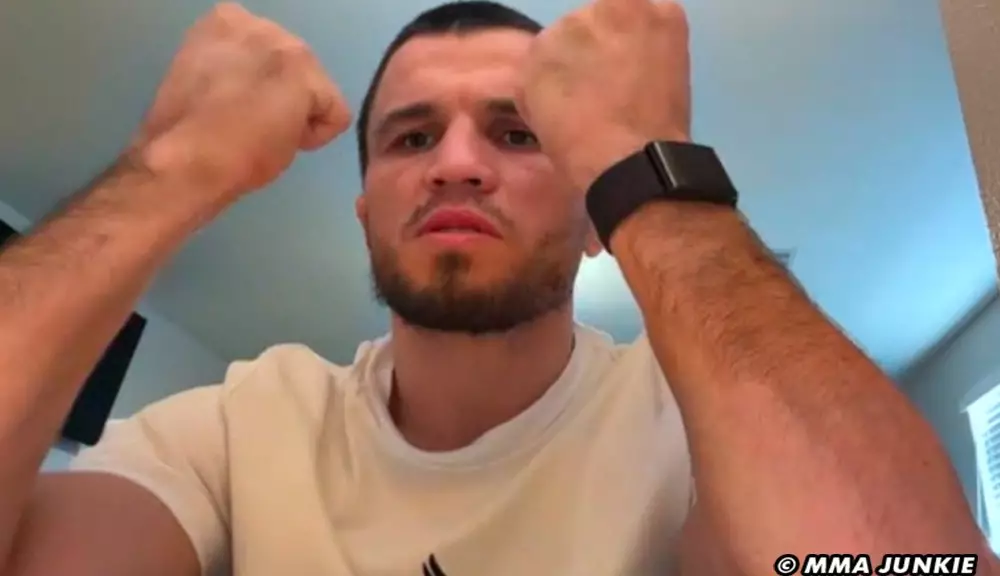As the countdown to UFC 311 nears its climax, the anticipation surrounding the bantamweight title bout between Umar Nurmagomedov and Merab Dvalishvili is palpable. Scheduled for January 18 at the Intuit Dome in Inglewood, California, this fight not only features two highly ranked contenders but also is steeped in tension and rivalry. Nurmagomedov enters this matchup undefeated at 18-0, while Dvalishvili, with a record of 18-4, made headlines after claiming the title from Sean O’Malley last September. The storyline heading into their encounter lies in Dvalishvili’s dismissive attitude towards Nurmagomedov’s unbeaten streak and lineage.
The Build-Up: Friction and Frustration
The rivalry between Nurmagomedov and Dvalishvili is marked by a series of back-and-forth jabs. Dvalishvili has been vocal in his criticism of Nurmagomedov’s rise within the UFC, framing it as a product of nepotism rather than merit. Referring to Nurmagomedov as “a spoiled little baby,” Dvalishvili is determined to prove his point by handing Nurmagomedov his first professional loss. While passionate words can stoke the excitement leading up to a fight, this animosity adds an intriguing layer to the bout. In interviews, Nurmagomedov maintains a level-headed demeanor despite the heated exchanges, suggesting that for him, actions in the octagon will speak louder than words.
Narratives and Motivations
Nurmagomedov’s approach to the buildup of this fight is refreshingly straightforward. He expressed his desire to focus solely on the competition and the championship rather than indulging in petty disputes. He remarked, “For me, I just want to take his belt.” This attitude is indicative of a fighter who understands the gravity of the moment but isn’t swayed by the mental games often synonymous with the sport. The intensity of their rivalry reached a boiling point during a promotional event where they were physically restrained from an altercation, solidifying the notion that this matchup goes beyond mere competition; it embodies personal pride and honor.
In contrast, Dvalishvili appears to thrive in this environment of animosity, often leaning into the narrative that questions Nurmagomedov’s legitimacy. He has articulated a desire to not only defend his title but also to deliver a significant statement regarding the meritocracy within the sport. This championship clash thus serves not only as a battle for the title but as a clash of philosophies surrounding fight culture—one that values family lineage versus true competitive merit.
The tension surrounding this fight will only escalate in the lead-up to the event, particularly during the pre-fight press conference. Dvalishvili is expected to challenge Nurmagomedov once again, reiterating his claims of disrespect towards him and his country. Nurmagomedov has called for Dvalishvili to substantiate these allegations, emphasizing that empty words will not serve him well once they step into the octagon. This juxtaposition between their approaches encapsulates the essence of competitive sports: the need to translate verbal commitments into tangible results.
As both fighters eye a decisive victory, the question looms as to how this bout will unfold. Nurmagomedov recognizes the unpredictable nature of mixed martial arts but remains firm in his belief that Dvalishvili cannot overcome him: “I can’t tell you, ‘This is not going to happen, never, ever.’ But this guy will not beat me. Never, ever.” Such confidence, if not backed by performance, can be a double-edged sword.
The stakes couldn’t be higher, and the narrative is set to unfold in a high-pressure environment. Fans are eager to witness if the animosity will yield a decisive outcome, solidifying one fighter’s legacy while potentially shattering the other’s. In the end, UFC 311 could very well be the arena where words fade, leaving only the result of the fight to speak for the combatants’ claims—words that might soon be forgotten amidst the raw intensity of competition.

